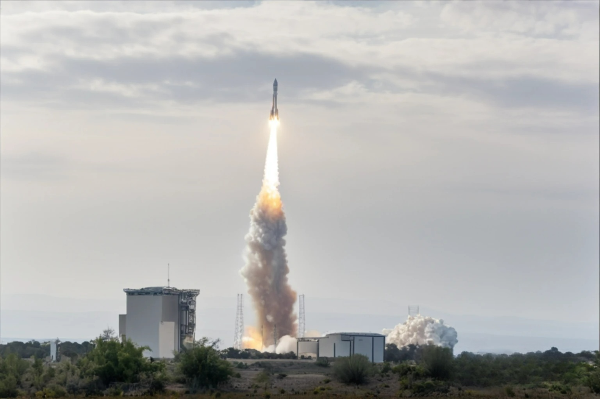Europe’s Ariane 6 launcher successfully embarked on its maiden flight, marking a significant milestone in restoring the continent’s independent access to space after delays, political setbacks, and funding debates.
Standing 56 meters (184 feet) tall, Europe’s newest unmanned rocket lifted off from French Guiana around 4 pm local time (19:00 GMT) on Tuesday, beginning a nearly three-hour flight aimed at ending a yearlong hiatus in European launches.
“Propulsion and trajectory are normal,” reported the mission’s launch director in live broadcast from the European Space Agency headquarters in Paris, where employees cheered and applauded the liftoff.
The launch proceeded after addressing a "minor issue" in a data acquisition system, which delayed the start of the launch window by one hour.
While this inaugural mission is not commercial, it plans to deploy several satellites and experiments from European agencies, companies, and universities if successful.
Ariane 6, developed by ArianeGroup at an estimated cost of 4 billion euros ($4.3bn) and co-owned by Airbus and Safran, faced repeated delays since its original 2020 schedule.
Europe has been without an independent means to launch its satellites since retiring its workhorse Ariane 5 rocket over a year ago, exacerbated by geopolitical tensions severing ties with Russian Soyuz rockets and grounding Italy’s Vega-C.
The delayed launch of Ariane 6 follows the retirement of its predecessor, Ariane 5, leaving Europe dependent on competitors like Elon Musk’s SpaceX for satellite launches.
“Ariane 6 is crucial for Europe’s space ambitions,” remarked Toni Tolker-Nielsen, ESA’s acting director of space transportation, from the control room at Europe’s spaceport, emphasizing the need for sovereign access to space amid current geopolitical challenges.
Ariane 6 is scheduled for additional launches this year, with plans for six in 2025 and eight in 2026.








